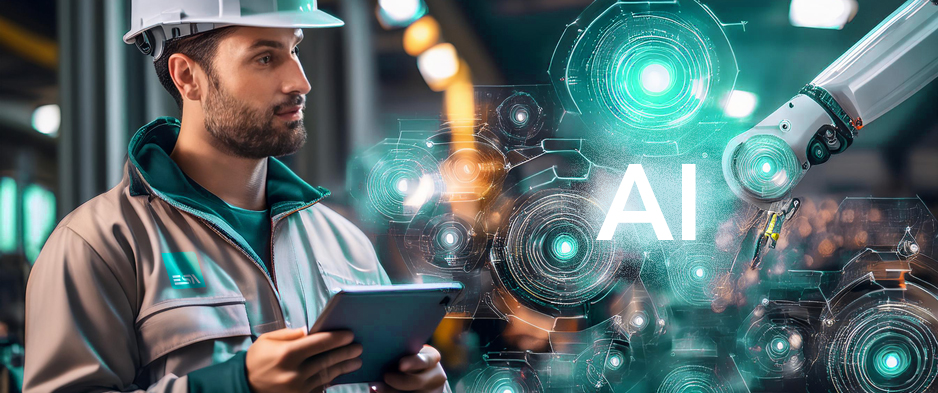Artificial Intelligence has a significant impact on operational efficiency and productivity. Generative AI models have started a transformation of several industrial sectors by improving human-machine interactions and managing complex inputs in a more natural way. A trend that will continue to grow in the future of industry.
Generative AI in today’s manufacturing
Over the past few years, GenAI technology has demonstrated its value in various applications, from process automation to supply chain management and predictive maintenance. A recent study by McKinsey, 60% of companies that have adopted AI are using generative AI and 40% plan to increase their investments in this direction.
In manufacturing, today, generative AI is used to simulate production scenarios and suggest more efficient configurations to reduce waste and optimize supply chains. For example, in fields such as automotive and aerospace it helps to create innovative designs and optimize materials
It has also proven to be of great support in the field of sustainability. Algorithms can in fact design more ecological and efficient solutions that minimize the use of materials, reduce energy consumption and optimize production processes to limit environmental impact. For example, in construction, generative Artificial Intelligence is used to design less energy-intensive buildings, with sustainable materials and less waste.
The future of generative AI in Industry 5.0
The application of the potential of generative AI is only just beginning. The future promises even more innovation and uses. First, progress concerns human-machine interactions: a fundamental aspect in Industry 5.0 which focuses on the cooperation between artificial intelligence and humans and no longer just on process automation.
On the one hand, GenAI, thanks to its ability to explore a wide range of different design options, generates new ideas. On the other hand, humans are stepping in to refine these ideas. In this way, a shared creative process is created in which AI enhances human inventiveness without replacing it. Designers and engineers can leverage this technology to collaborate with advanced algorithms and create innovative solutions.
But that’s not all. The evolution of generative AI will have a significant impact on servitization. Thanks to its ability to analyze large amounts of data and create tailored solutions, generative AI supports the personalization of services. Companies will be able to provide end users with more “talking” machines. That is, capable of answering specific questions about their operational status, offering insights into any anomalies, and suggesting proactive interventions. In sectors such as healthcare, for example, it will be possible to provide personalized experiences based on patient data. In this way, generative AI enables a shift from simply providing products to offering comprehensive, data-driven services that are more customer-centric, adaptable, and efficient.

